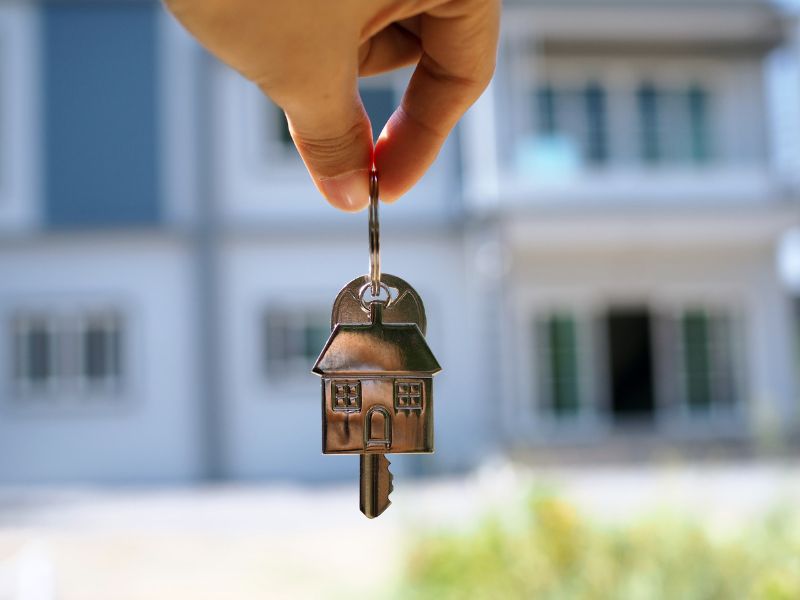 Do you ever dream about a larger, roomier, or more luxurious living space? Or perhaps just want to experience the joy of owning your own home and building your net worth instead of renting? Let’s explore a few questions that can help to answer whether or not you’re ready for a new lifestyle as a homeowner.
Do you ever dream about a larger, roomier, or more luxurious living space? Or perhaps just want to experience the joy of owning your own home and building your net worth instead of renting? Let’s explore a few questions that can help to answer whether or not you’re ready for a new lifestyle as a homeowner.
Can You Realistically Afford To Buy A Home?
The first consideration to make is a financial one: can you afford it? Buying a home is a significant financial investment. In most cases, you’ll need to manage monthly mortgage payments for many years. The good news: owning a home is more affordable than you might think. If you’re already a stable renter then you’re most of the way there.
Do You Have Your Down Payment Saved Up?
If you’re confident that monthly payments are no problem, then the next step is saving up enough to cover your down payment. This is a lump-sum investment that you make when you buy the home. Typically your down payment is around 20 percent of the home’s cost, but there are assistance programs that can reduce this further.
Do You Know What Type Of Home You Need?
Once you’ve cleared all of the financial hurdles, you will need to decide exactly what kind of home you need. If you’re a single young professional, a condo or apartment might be the perfect starter home from which you can upgrade later. Or you might prefer something more rural which comes with more yard space, perfect for pets.
Are You Ready To Set Down Some Roots?
Finally, it’s worth taking some time to decide whether or not you’re ready to emotionally and physically invest in your local community. Is your career stable enough that you won’t be moving for at least a few years? What about that of your partner or spouse? If you don’t already, do you envision having children in the future? All of these are considerations that will help you choose the right neighborhood.
When you are ready, our professional mortgage team is here to help you finance the home of your dreams.
 If you have purchased a new home and are going to move in soon, what are the first few things that you will need to do upon moving into your new home?
If you have purchased a new home and are going to move in soon, what are the first few things that you will need to do upon moving into your new home? New homes can be scary. But when you take the time to think about it and plan ahead, maintaining a home is easier than you think a manageable mix of experience and common sense. Here are five skills that will help maintain your new home for years to come.
New homes can be scary. But when you take the time to think about it and plan ahead, maintaining a home is easier than you think a manageable mix of experience and common sense. Here are five skills that will help maintain your new home for years to come. Have you finally found your dream home after months of searching, and then you are told that the seller has received other offers? No buyer wants to find themselves in a bidding war against another buyer as it is a stressful situation. Being unprepared and not having your finances in order will make it even more stressful. Here are a few quick ways if you’re looking to speed up your mortgage approval process, here’s a checklist to help you prepare:
Have you finally found your dream home after months of searching, and then you are told that the seller has received other offers? No buyer wants to find themselves in a bidding war against another buyer as it is a stressful situation. Being unprepared and not having your finances in order will make it even more stressful. Here are a few quick ways if you’re looking to speed up your mortgage approval process, here’s a checklist to help you prepare: Buying a home, a car, or any significant investment often involves making a down payment. The down payment is a crucial part of the purchasing process, as it can impact your loan terms, interest rates, and monthly payments. But how much should you save for a down payment, and why is it so important?
Buying a home, a car, or any significant investment often involves making a down payment. The down payment is a crucial part of the purchasing process, as it can impact your loan terms, interest rates, and monthly payments. But how much should you save for a down payment, and why is it so important? Buying a home is one of life’s significant milestones, but it often comes with a significant price tag. Fortunately, the sticker price on a house isn’t always set in stone. When buying a home, negotiating certain costs can save you a significant amount of money. Here are some costs that every homebuyer should negotiate:
Buying a home is one of life’s significant milestones, but it often comes with a significant price tag. Fortunately, the sticker price on a house isn’t always set in stone. When buying a home, negotiating certain costs can save you a significant amount of money. Here are some costs that every homebuyer should negotiate: